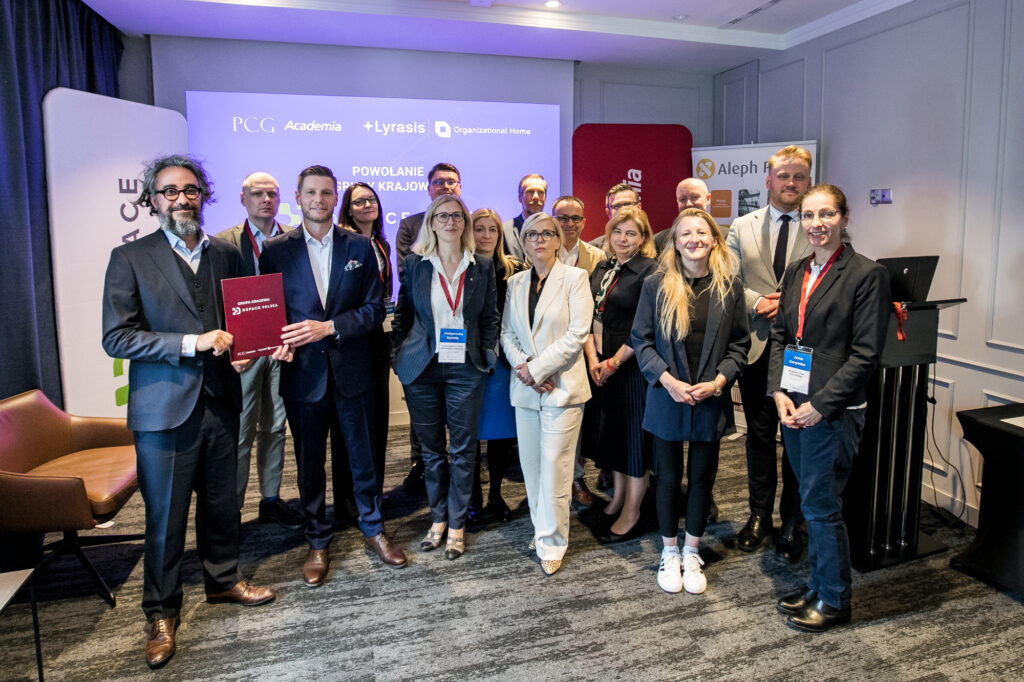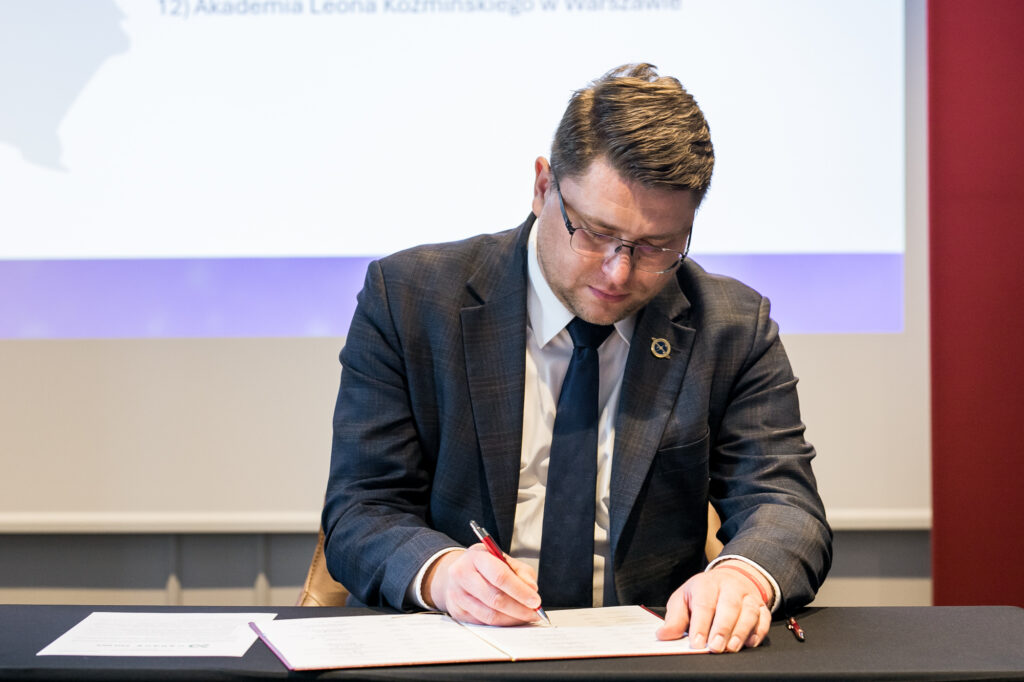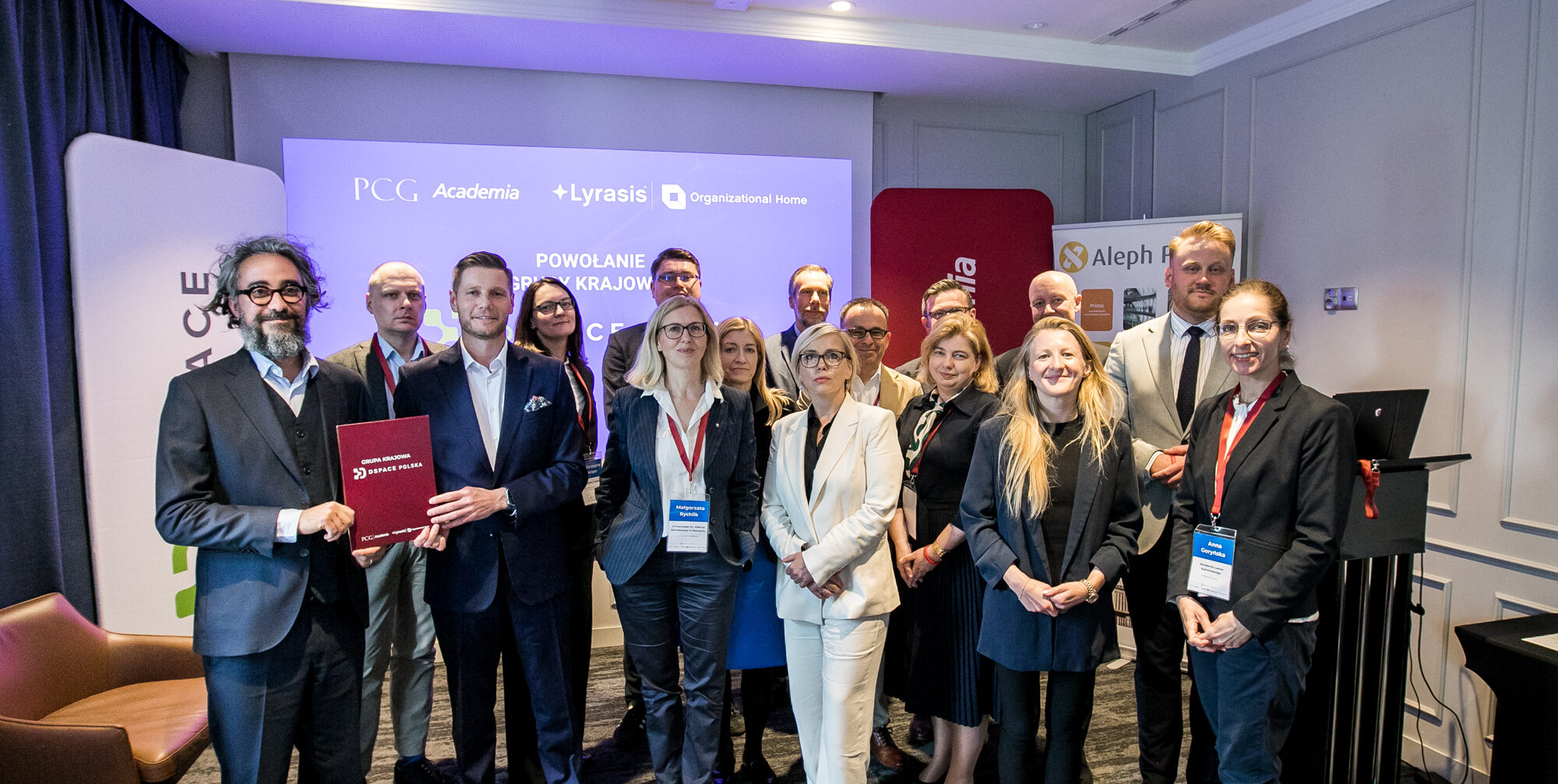Nicolaus Copernicus Superior School (SGMK) joined the newly established DSpace Polish User Group, initiated by 15 scientific institutions from across the country.
The formal establishment of the Group took place during a conference in Zakopane on May 18-20 this year. The event brought together representatives of Polish scientific and academic institutions, who jointly declared their intention to build a strong, substantive community of solution developers and users of the DSpace platform – an open system for managing digital resources.

As part of the meeting, a letter of intent was signed on the establishment of the DSpace Polish User Group.

On behalf of the Nicolaus Copernicus Superior School, the document was signed by SGMK Chancellor Wojciech Kondrat. Dr. Remigiusz Kopoczek, Director of the SGMK Doctoral School, also took part in the ceremony.
Joining the Group is not only a symbolic gesture, but also an important step towards real cooperation in the field of open science and the development of digital infrastructure – both at the national and international level.
The DSpace Polish User Group meeting was organized by PCG Academia in cooperation with the international consortium LYRASIS and Aleph Poland. The event aimed to integrate the community of representatives of universities and scientific institutes from all over the country using the DSpace scientific repository and to enable the exchange of experiences on the ongoing global migration to the latest version of this software.
DSpace is the world’s most popular scientific repository used by more than 3,000 institutions, including leading universities from the United States, the United Kingdom and Poland. DSpace is used and financially supported by the world’s top universities, including University of Cambridge, Princeton University, Imperial College London, Georgetown University and University of Toronto.
DSpace makes it easy to collect and openly share all types of digital content, including text, images, moving pictures, video files and datasets. Thanks to an ever-growing community of developers committed to constantly expanding and improving the software, each successive version of DSpace delivers new functionality, available to all institutions using the system. Currently, dozens of leading Polish universities and polytechnics use DSpace as a repository for storing and sharing their digital resources.




